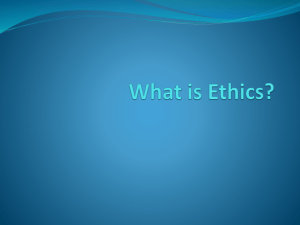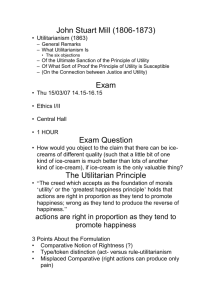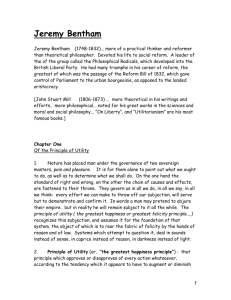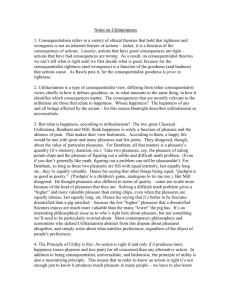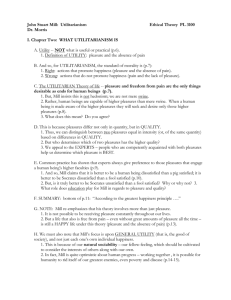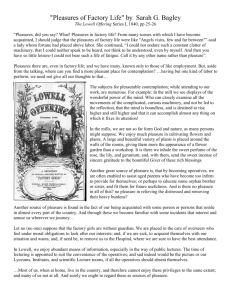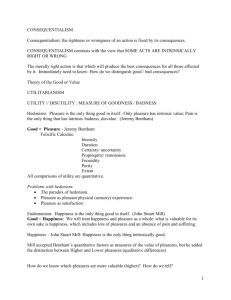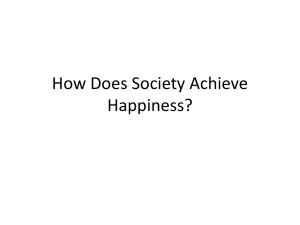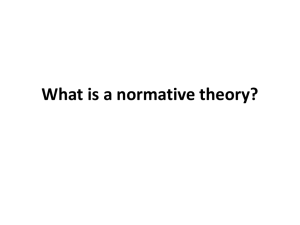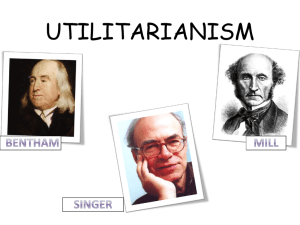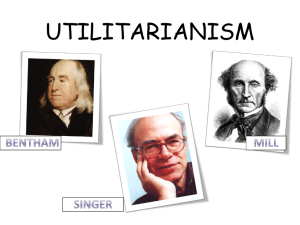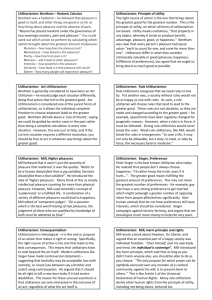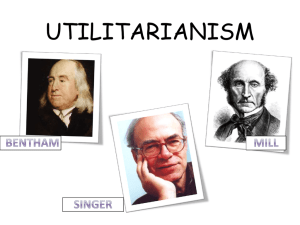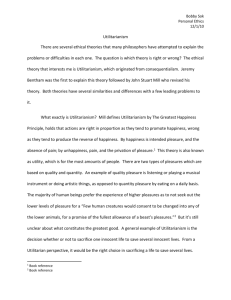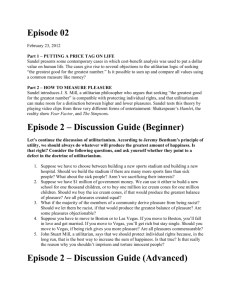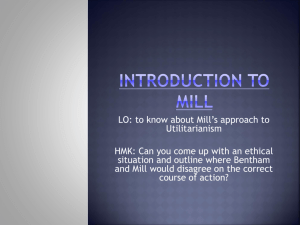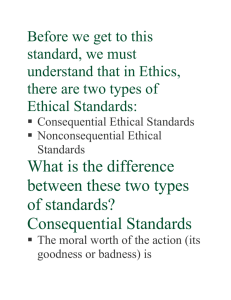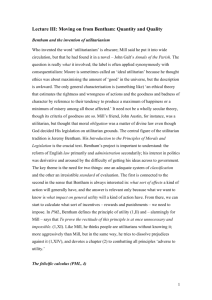Utilitarianism - Thatmarcusfamily.org
advertisement
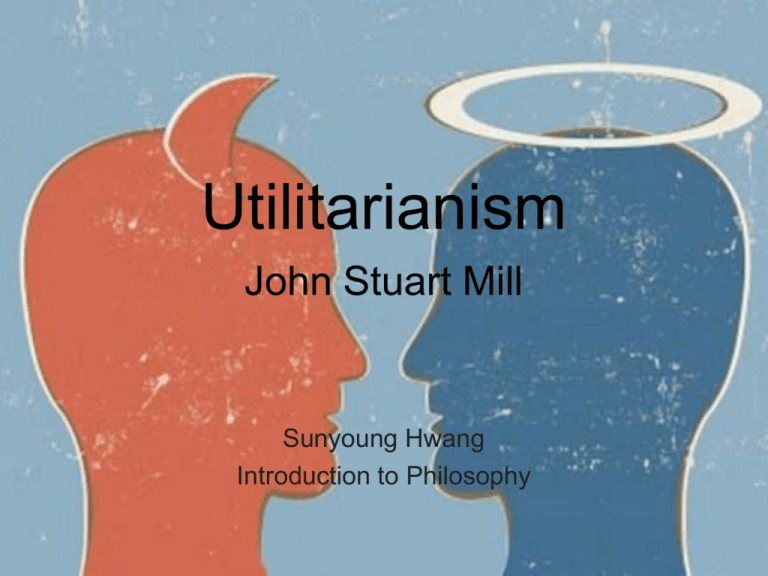
Utilitarianism John Stuart Mill Sunyoung Hwang Introduction to Philosophy John Stuart Mill • 1806-1873 • Contributed to political theory, economics, and ethics • One of the most influential proponents of Utilitarianism • Childhood was heavily influenced by Jeremy Bentham, the originator of Classical Utilitarianism Consequentialism • The general belief that only consequences matter • It is an ethical theory that proposes we judge the morality of an action solely on the consequences of that action • Utilitarianism is a form of consequentialism because it adopts this forward-looking approach Classical Utilitarianism • First proposed by Jeremy Bentham • Hedonistic because the theory supposes that pleasure is the only intrinsic good and that we are driven by our desire for this good • Since pleasure is the only desirable end, we can use pleasure to evaluate the morality of our actions Greatest Happiness Principle • “By happiness is intended pleasure, and the absence of pain; by unhappiness, pain, and the privation of pleasure.” • “… actions are right in proportion as they tend to promote happiness, wrong as they tend to produce the reverse of happiness.” • Bentham offers seven criteria by which we can measure happiness: • • • • • Intensity Duration Certainty or Uncertainty Propinquity (proximity) or Remoteness Fecundity (capability of producing more of the same type of feeling) • Purity (probability that an experience will not be followed by the opposite type of feeling) • Extent (the number of people who would be affected by the experience) • The sum of these criteria is the overall value of the experience, with pleasant experiences having a higher value than unpleasant experiences Criticisms of Bentham’s Utilitarianism • But this ethical principle has been criticized for degrading human nature: • Supposes that we are no better than animals because we only pursue things for the sake of pleasure • And for not instructing that we aim for higher pursuits: • It can not answer the question: “why shouldn’t I just get my pleasure from doing drugs or drinking?” Mill’s Defense • We find the comparison of our desires to the desires of animals degrading because we view ourselves as having higher faculties than animals • The critics are actually the ones degrading human nature by assuming we are incapable of seeking pleasures that are more sophisticated than the pleasures beasts would seek • Those with higher faculties require more noble sources of happiness Higher and Lower Pleasures • In order to address this criticism, Mill acknowledges that there are two kinds of pleasure: higher pleasure and lower pleasure • Higher pleasures are the pleasures we derive from activities that exercise our higher faculties • Attending the opera, volunteering at a soup kitchen • Lower pleasures are the pleasures that appeal to our primitive natures • Sex, alcohol • These two kinds of pleasure are not equal; one is more desirable and, therefore, valuable than the other • Mill claims that people will select the more noble pleasure, opting for the activity that possesses the “intrinsic superiority of the higher” A Moral Absolutist Approach • Although Utilitarianism does not provide an explicit list of duties, it is still prescriptive • The theory acknowledges that a morally sound action exists and offers guidelines that help us select that right action • Since the theory rests on imperfect knowledge occasional errors can be expected, but these errors should not detract from the strength of the theory • Again, the theory acts as a formulaic guide for calculating the action that would provide the most pleasure, not a set of commandments Discussion Questions • When assessing the morality of an action, do you feel comfortable disregarding motive and situational context? • Is pleasure the only end that we seek, or has Utilitarianism oversimplified our desires? • How do you feel about Mill’s claim about superior and inferior pleasures? Is he being elitist?


